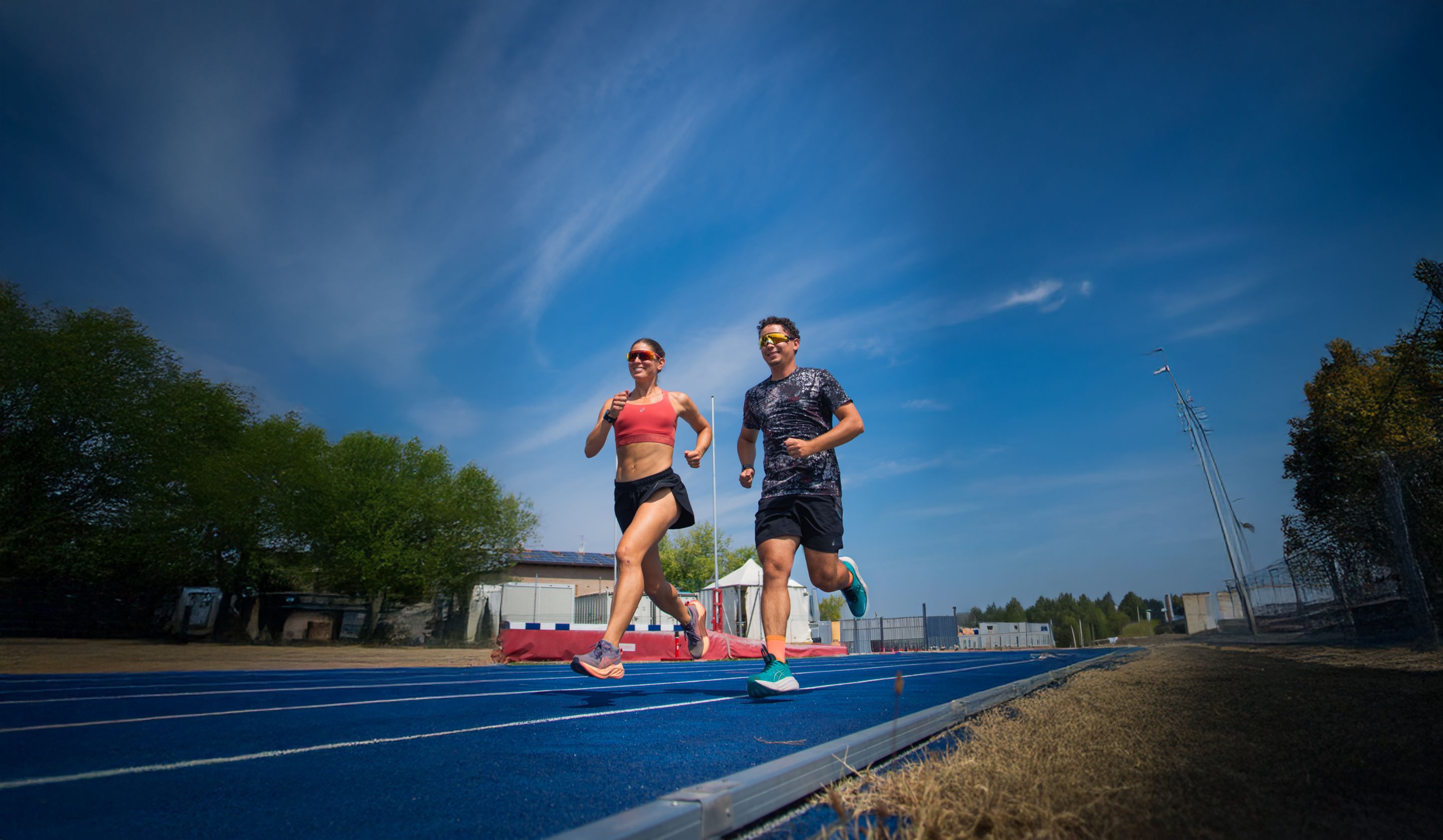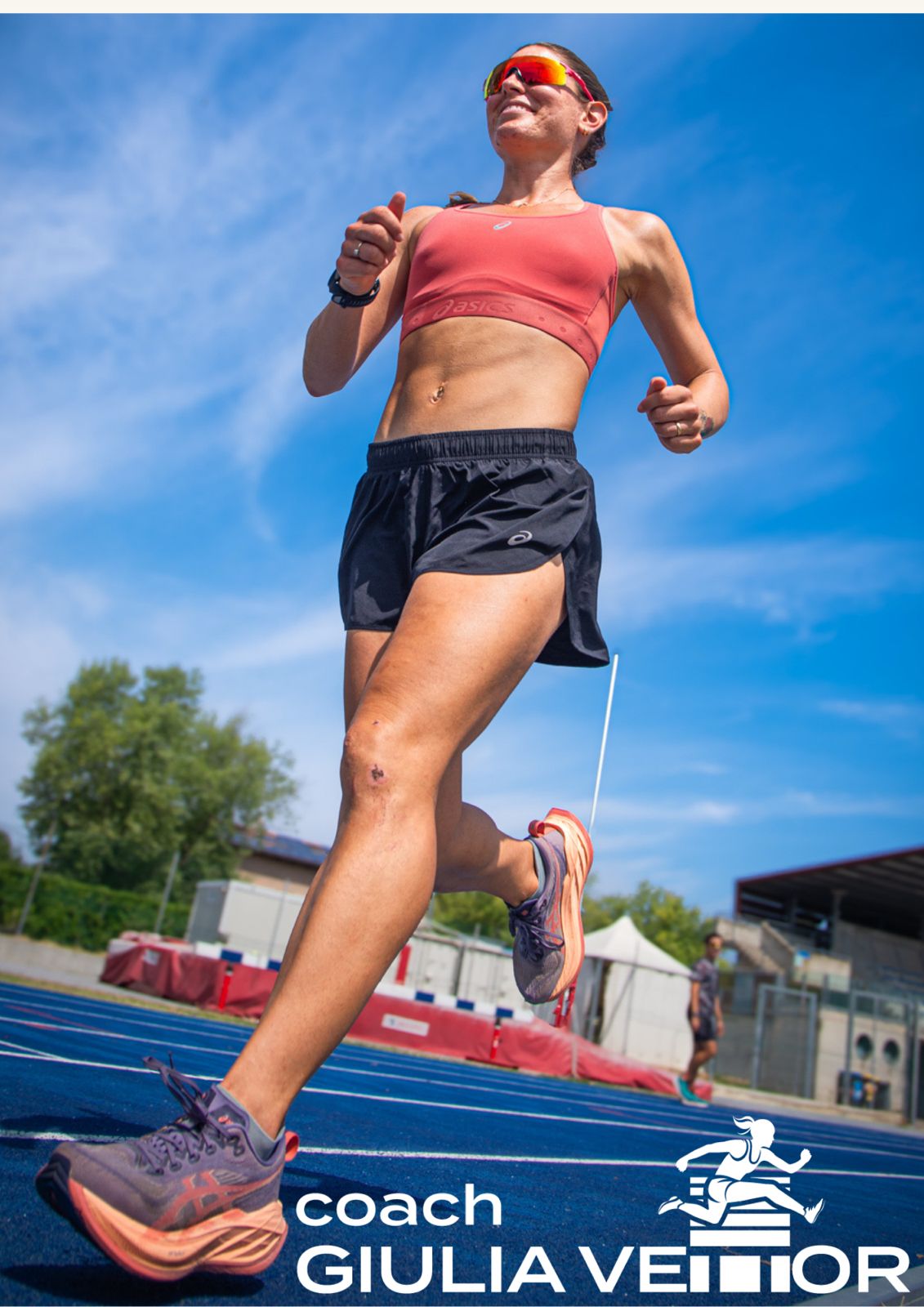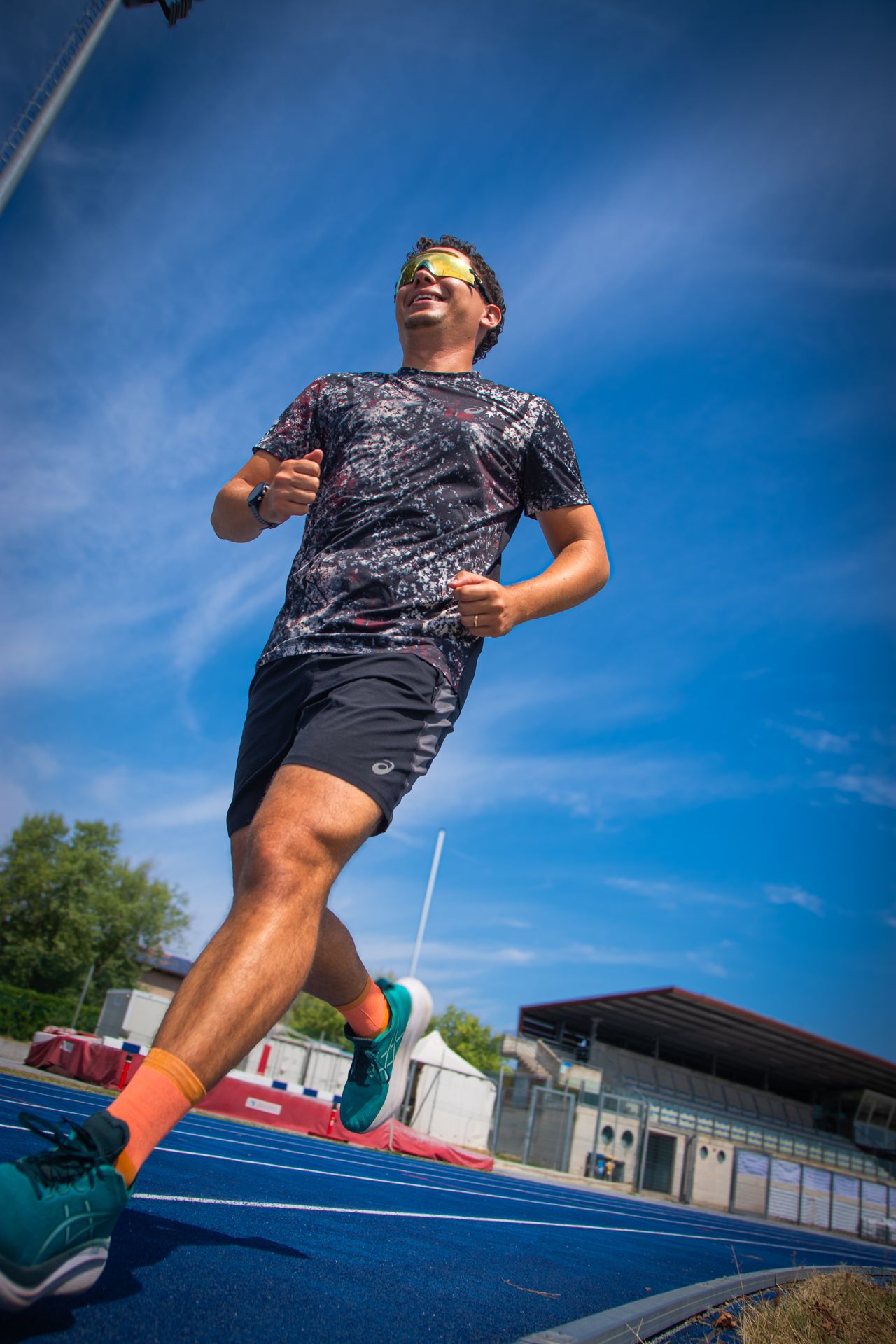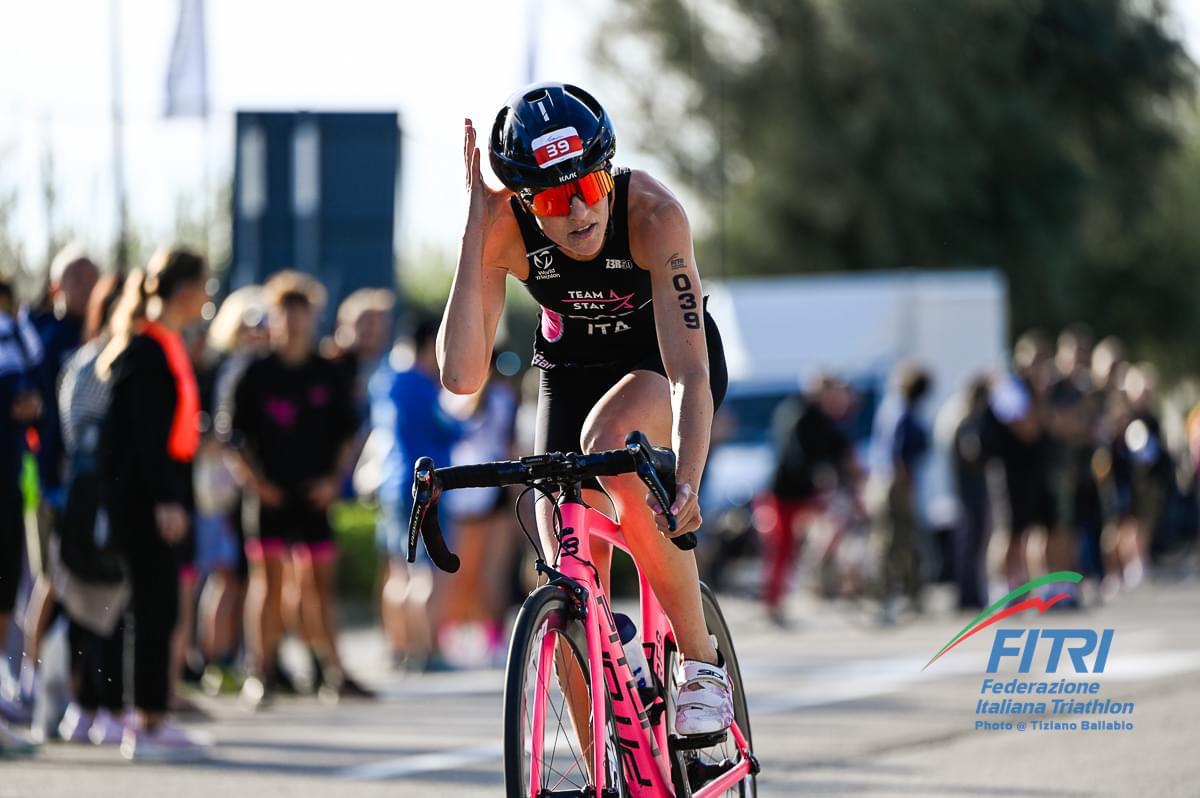Half Marathon: how to prepare at your best with the advice of Alexander Serra and Giulia Vettor
The half-marathon, with its 21.097 km, is one of the most loved distances by runners all over the world.
It is not “just” half of a marathon, but a test in its own right: long enough to require preparation and discipline, yet still accessible to those who want to challenge themselves without immediately facing the 42 km.
For many, it represents a first big milestone after 10 km, for others an essential step towards the marathon. It is the race of balance: it requires endurance, speed, mental strength, but also the ability to manage energy strategically.
And it is from this challenge that our double interview with Alexander Serra and Giulia Vettor begins, a couple in life and in running, who share how to best approach preparation, nutrition, racing, and recovery.
Who are Alexander and Giulia
He is Alexander Serra, former athlete and now certified coach, founder of AlexRunningCoach and a widely followed voice on Instagram as @runningcoach_.
She is Giulia Vettor, born in 1994, an Italian runner with a FIDAL background, passionate about middle-distance and a true inspiration for those who live running with dedication.
Both members of the Asics FrontRunner team, they are a couple in life and in sport: they share kilometers, dreams, and training.
How did you approach running? What won you over about this sport, to the point of making it part of your everyday life?
Alexander: “It happened in middle school. My PE teacher kept telling me I was fast, that I had talent, so I started. Running immediately won me over: it’s practical, simple, something you can do anywhere and at any time. You don’t need special equipment, just a pair of shoes and the desire to go out.”
Giulia: “For me it was love at first sight while watching the Olympics. Then in my town there was a local race, and I decided to try. The feeling at the end of a run is always like the first time: the repetitive movement, the healthy hunger for air at the finish… it captured me completely.”
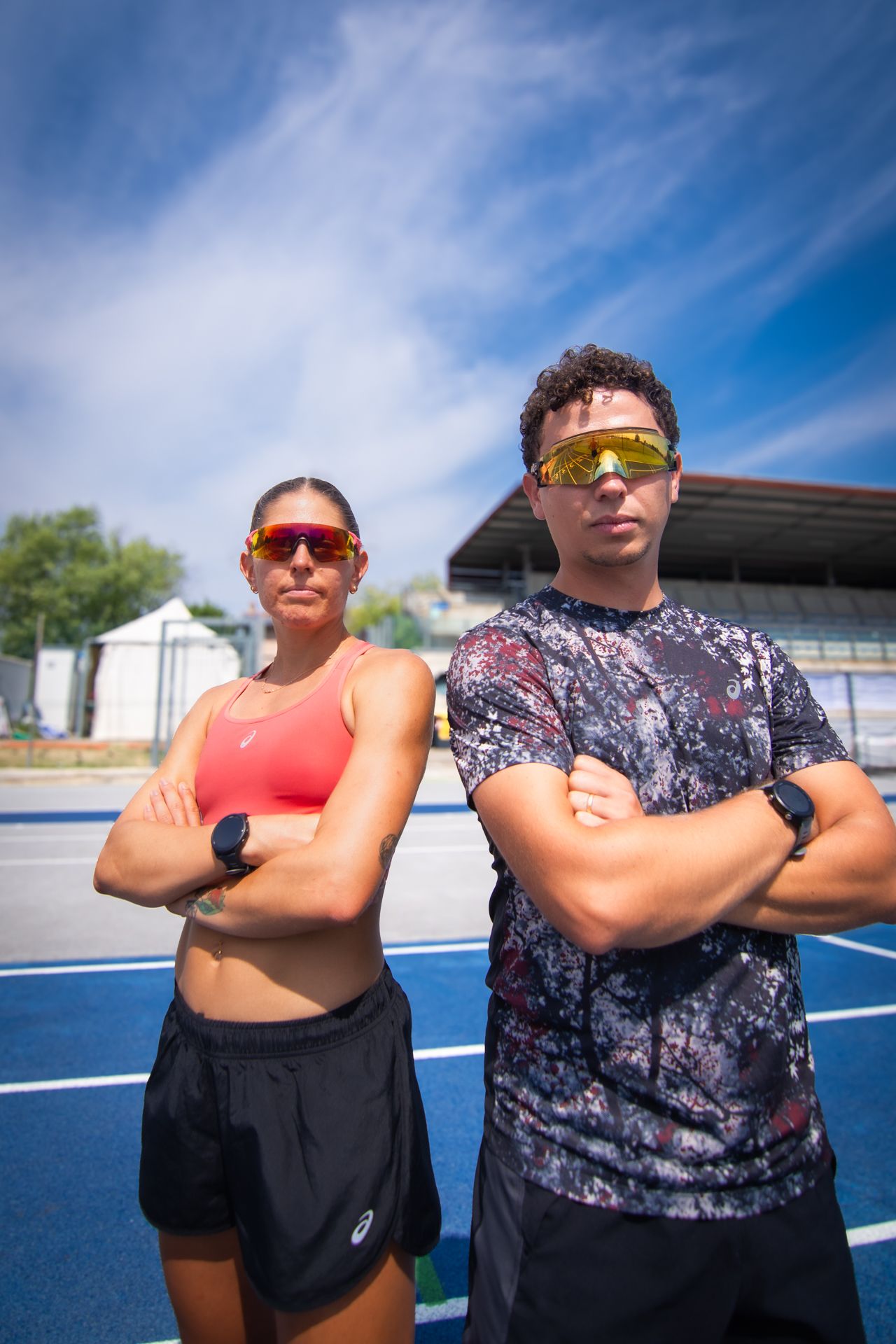
What is your main motivation to run a half marathon? And how does preparation differ between men and women?
Giulia: “For me, the half is a milestone on the journey. Not the final goal, but an intermediate peak that brings me closer to my real dream: the marathon.” she says, with eyes full of passion. “The motivation comes from planning. The half has to be tailored to the person, regardless of gender. Of course, women have extra variables linked to the menstrual cycle: some feel it a lot, and training schedules must consider it. Others, instead, don’t struggle as much. But what matters is always an individual plan, tailored to each person’s needs.
Sometimes these fluctuations can even be an advantage, for example in strength training. The important thing is to know yourself and learn to listen to your body.”
What are your tips for physical preparation? In your opinion, are there aspects that require a different approach between men and women?
Alexander: “The key word is gradualness. If you start from zero, it’s better to begin with shorter distances, like 5 or 10 km. Once you have a base, you can plan a 12–16 week program. Training should always include: recovery runs, intervals, pace variations, the long slow run, and especially strength work for core, muscles, and joints. I also recommend running plenty of 10 km races: they’re fun and great for working on speed.”
Giulia: “For women, the menstrual cycle affects training a lot. Some phases are perfect for anaerobic high-intensity and strength work, while others are not ideal for long runs or very demanding sessions, especially because of iron loss. In the pre-menstrual or ovulatory phase, if symptoms are strong, it’s better to lighten the load and not chase performance. With menopause, a completely new world opens up, requiring a different approach.”
Alexander adds: “And let’s not forget that men also have cycles of load and recovery. It’s not always about ‘running more’: you have to plan peaks and respect regeneration times.”
Nutrition and supplementation: how important are they?
Alexander: “Proper nutrition shouldn’t follow a rigid, one-size-fits-all scheme: it must adapt to what’s ahead in training and racing. The same applies to supplementation: it’s personal and depends on workload and lifestyle.”
Giulia: “At first I underestimated this aspect, until I consulted a dietitian. That was a turning point. Now my supplementation is essential but targeted. If you run over 100 km a week, it becomes crucial. But even with lower volumes, vitamins like D make a difference. That’s why I always recommend consulting a nutritionist: copying someone else’s plan isn’t enough.”
Alexander: “And it’s not just for “pro” athletes. Even those who work eight hours a day and train for a half marathon need supplementation: otherwise recovery will never be optimal.”
How do you approach the race mentally and tactically?
Alexander: “The best strategy is to trust the work done in the previous months. Pace is key. Often I see men start too fast and then struggle at the end; women instead tend to respect paces and keep them to the finish. I recommend planning multiple races, at least three: the first as a test, the second to perform well, the third to confirm results. Physiology is science: there’s no room for improvisation.”
Giulia: “I coach only women and notice a wide range of approaches. Some are very responsible in life and bring this into running, others are more instinctive and volatile. This often makes pacing difficult, but it’s something that can be overcome with time and dedication. Everyone reflects their lifestyle in running. As a woman coaching women, I see that often we seek social validation in running, and sometimes we self-sabotage. Personally, after many mistakes, I learned to trust the process — that was the switch. That’s why I tell everyone: trust the work, don’t rush the journey.”
And between the two of you, who’s more competitive?
Alexander and Giulia (laughing): “We challenge each other, we’re both competitive!”
Recovery: how do you take care of your body after a tough race?
Alexander: “Recovery is an integral part of performance, but runners often struggle to accept it. After a race, I recommend complete rest and then, later, a recovery run. The half marathon is a huge strain on the body: not respecting recovery means not starting fresh for the next goal.”
Giulia: “I prefer low-intensity activities: swimming, cycling, yoga, pilates, or simply walking. They help me stay active without overload. I also add stretching and physiotherapy treatments: the body is grateful.”
One last tip for those about to run their first half marathon?
Alexander: “Don’t rush. You need a clear, gradual program that respects your health and individuality. And above all: never run the full distance a few days before the race! That’s the best way to burn out.”
Giulia: “Take care of nutrition and supplementation during preparation. On race day, start with the lightest possible stomach to avoid issues. Train yourself to drink properly: water should be taken carefully, especially if cold — better to sip and rinse. And if in doubt, work with a coach or nutritionist: it will save you many mistakes.”
Extra support for your half marathon
If you’re preparing for your next half marathon, alongside training, nutrition, and recovery, the right support is essential.
Until September 14, on the official Cetilar® Nutrition shop, the 21 km Running Kit is available with a 20% discount. A pack specifically designed for every stage of the race: from pre-race energy, to in-race support, to optimal post-race recovery.
An extra ally to run your 21 km at your best.
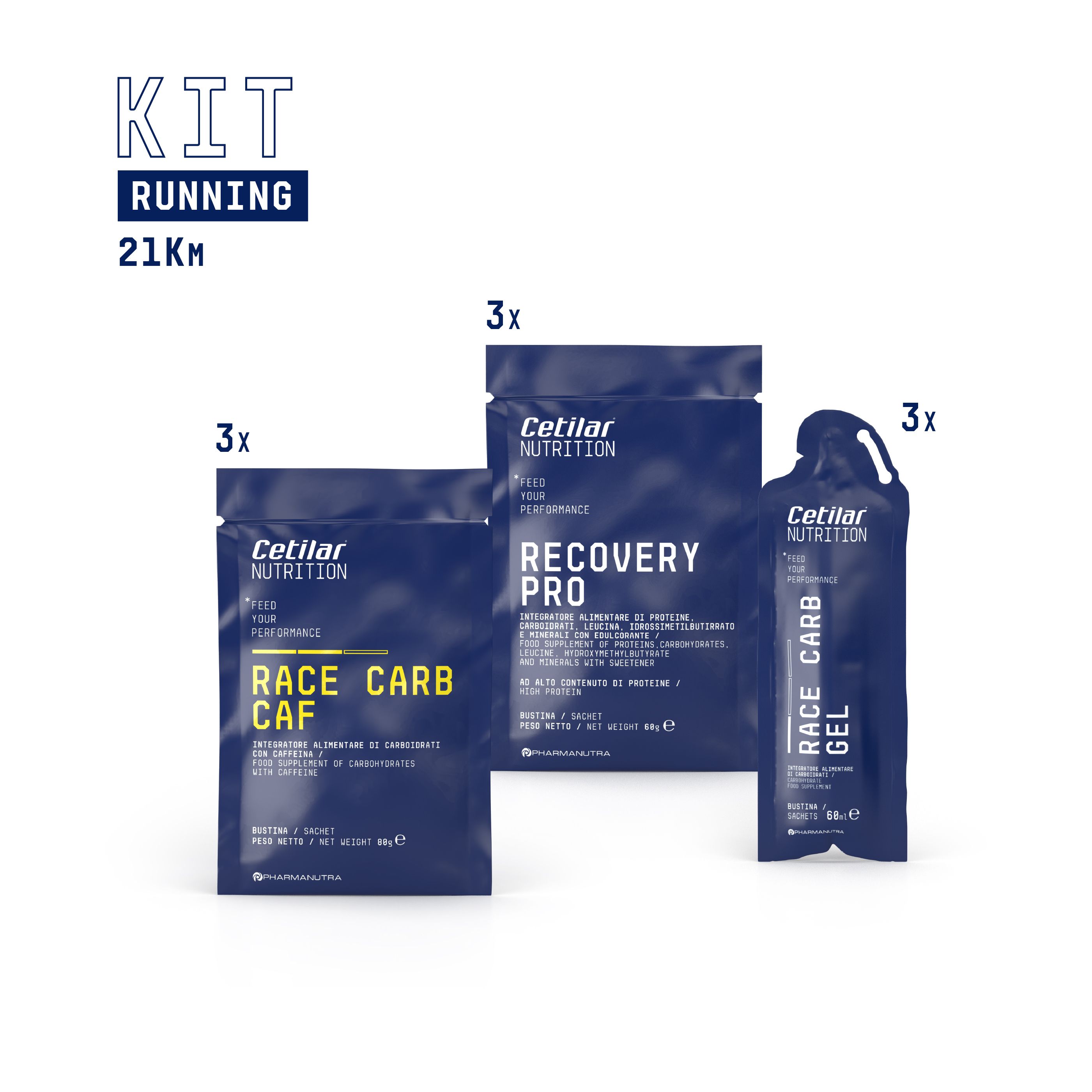 Conclusions
Conclusions
Preparing for a half marathon is not just about mileage. It’s a journey that requires body awareness, consistency, method and — why not — the right dose of competitiveness.
The advice of Alexander and Giulia shows that running together, in life and in sport, also means growing together.
